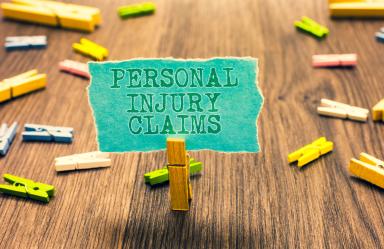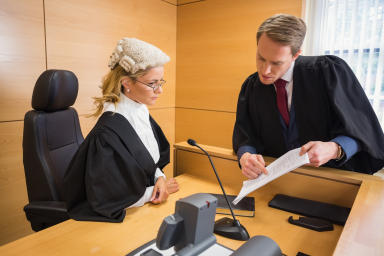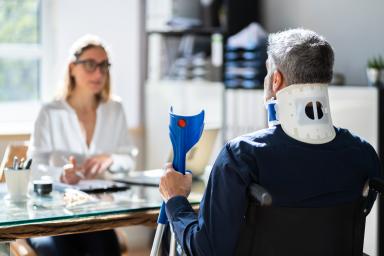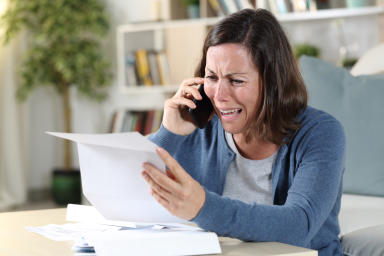Florida Personal Injury Laws
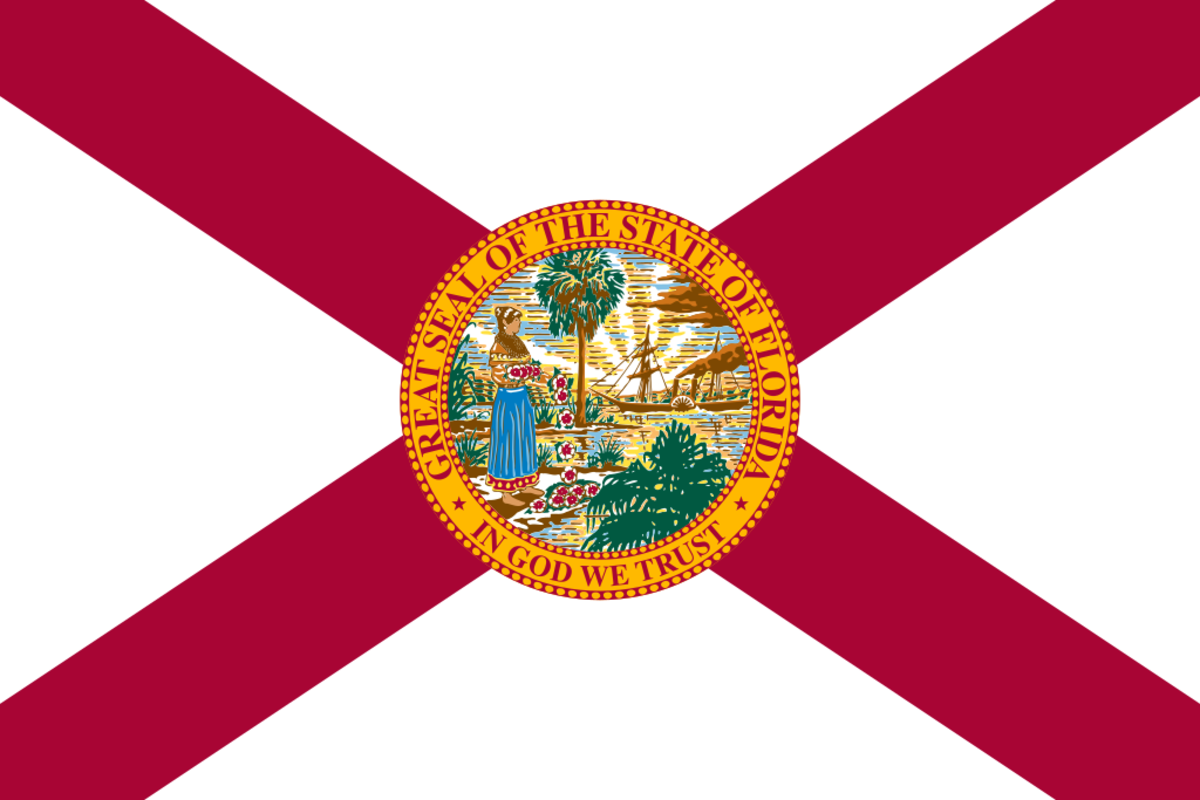
In 2021, the Sunshine State recorded a staggering toll of 22,662 fatal injuries, 17,654 of which were determined to be unintentional.
In response, the department has strengthened its Violence and Injury Prevention initiative, which aims to protect the well-being of residents by focusing on addressing and controlling injury risks across the state.
Meanwhile, Florida’s Target Zero program continues to crack down on aggressive and distracted drivers on the road and aims to ultimately reduce the number of traffic-related deaths to zero. By aiming for zero casualties, the state strives to create safer road conditions for locals and tourists alike.
The Purpose of Florida’s Personal Injury Laws
Injury protection laws are implemented throughout the state to make sure victims receive fair compensation for their suffering and losses due to someone else’s negligence. While Florida’s personal injury laws are complex, understanding the basic guidelines can make it easier for accident victims to know the steps they can take and the protections available to them.
No-Fault Insurance System in Florida
In a car accident, Florida follows the no-fault system, requiring drivers to carry insurance with a minimum coverage of $10,000. Known as personal injury protection, this type of insurance provides benefits to victims regardless of who caused the accident.
For instance, Person A and Person B collided at an intersection on a Florida highway, leaving both of them with minor injuries. In a typical insurance setup, the next steps would involve determining who was at fault for the accident and then filing claims with the at-fault party’s insurance company. In this case, both drivers would have to rely on their own insurance providers for compensation and the handling of their medical expenses.
The key advantage of the no-fault system is its speed and efficiency. Since it provides immediate support to those involved in an accident, parties can avoid waiting through a long investigation before getting the assistance they need.
Florida’s 10/20/10 Insurance Rule
In addition to meeting the requirement to carry PIP insurance, drivers must also adhere to an insurance limit. This is commonly called the 10/20/10 insurance rule, indicating the maximum amount that an insurance carrier will pay out. It is designed to ensure a certain level of financial protection for those involved in accidents.
A person with insurance who is hurt in an automobile accident is entitled to up to $10,000 in bodily injury coverage; $20,000 is the maximum payout limit per accident, regardless of how many people are injured. The insurance rule also assigns a maximum payout of $10,000 for property damage per accident.
Workers’ Compensation
On June 29, 2017, five workers from the Tampa Electric Company tragically lost their lives in a power plant explosion. This incident underscored the need to address workplace safety issues in industrial environments in Florida. TECO was later sentenced to a $500,000 fine for willfully violating guidelines on work safety. Workers' compensation laws played a key role in making sure the victims’ families got the proper support they needed afterwards.
Accidents such as the TECO case are pretty common in Florida. In 2021, there were a total of 315 fatal work injuries recorded. The private construction industry recorded the highest number of these incidents.
Under Florida law, employers are required to provide their employees with workers’ compensation coverage, which will cover essential expenses like lost wages, funeral costs, medical bills, and other necessary expenses that might arise.
One’s work status is important when pursuing a workers’ compensation case. To be eligible for compensation, the plaintiff must be labeled as an employee of the company and not as an independent contractor. Otherwise, they may not get due remuneration for their injuries.
The claimant or plaintiff must also have reasonable evidence that their injury or illness was directly linked to their job duties and responsibilities. Getting injured while operating a machine, slipping while carrying tools, getting exposed to harmful chemicals, and falling off a platform at work are examples of incidents that qualify for workers’ compensation.
To help ensure that the process runs smoothly and benefits are provided promptly and accurately, the Division of Workers' Compensation steps in to help workplace accident victims secure benefits and assist in their recovery. It also provides resources for gainful reemployment for injured employees.
Premises Liability Law
People visiting or inhabiting a property have reasonable expectations that they should be safe, and property owners have a responsibility—by social contract and by law—to ensure their premises are well-maintained and reasonably secure.
Individuals injured on someone else’s property may pursue compensation for injuries they have sustained, but there are several factors to consider before payment is granted. To determine liability, Florida law considers the position of the injured person as either an invitee, licensee, or trespasser.
Invitee
An invitee is someone who is considered invited to the property for business purposes or mutual benefit. Examples of invitees are customers at a store or clients visiting an office. They are treated with the utmost care by the property owners. If there are any hazards on the property, these need to be addressed immediately to reduce the risk of harm or injury.
However, if a public invitee gets injured on a public-owned property such as a park, public school, or sidewalk, they might have to deal with sovereign immunity. This legal doctrine protects government agencies and their employees from being held liable in certain situations. An injured individual may need to overcome additional legal hurdles to seek compensation for their injuries.
Licensee
A licensee refers to someone allowed to enter a property for non-business or social situations, like friends, colleagues, or family members. The duty of care for licensees is typically lower than for invitees, but the property owner still owes them a reasonable amount. Owners must thus warn licensees of known dangers that may not be immediately obvious.
Trespassers
A trespasser is someone who enters a property without permission. Compared to invitees and licensees, the liability for injuries to trespassers is significantly more limited. Still, this rule has certain exceptions, such as when the trespasser is a child or when the property owner commits gross negligence or intentional misconduct.
Slip-and-fall incidents are among the most common premises liability cases. Other frequent case examples include elevator and escalator accidents, swimming pool accidents, construction accidents, and animal attacks.
Product Liability Law
Consumers place implicit trust in the safety and reliability of the products they purchase, assuming that they will not cause harm or injury when used as intended. This is where Florida’s product liability law comes into play—to hold manufacturers, distributors, and retailers accountable for defective or poorly designed products.
For victims to win a product liability lawsuit, they must demonstrate that the manufacturer’s actions directly caused the injuries they sustained. Negligence claims can arise from a wide range of product defect types, which include the following:
Manufacturing defects. These occur during the production process, affecting one or a limited number of units within a product line. When products deviate from their intended design, they become unsafe. For example, a pharmaceutical company may produce a batch of medication where some pills contain an incorrect chemical dosage due to an error in the manufacturing process. If patients are harmed by taking these defective pills, the company may be liable for the injuries those pills cause.
Design defects. These flaws in a product's blueprint make it inherently hazardous, even when produced precisely according to specifications. Manufacturers can be held accountable for injuries caused by such defects, especially if safer alternative designs were feasible but were not pursued. For instance, if a household appliance is designed with faulty wiring that poses a risk of electrical fires, the manufacturer might be held responsible for the injuries the defect causes..
Marketing defects. These refer to lapses in a product’s marketing that put its intended users at significant risk. The product itself might be free of design defects or manufacturing defects, but the lack of proper warning or instruction renders it unsafe for consumers who use it without awareness of its potential dangers.
Dog Bite Injuries in Florida
Dog bites can cause significant physical injuries, infections, and, in the worst cases, even fatalities. Every year, more than 600 Floridians find themselves hospitalized from injuries sustained from dog bites, while approximately two individuals tragically lose their lives due to severe dog bite injuries. It’s crucial for dog owners and the general public to take the necessary precautions to uphold safety and minimize harm.
For dog attack incidents, the dog owner can face legal consequences on both the criminal and civil fronts. Dog owners are held responsible for the injuries and damage caused by their dogs if a person is bitten and the attack occurred in a public area or in a private location where the victim was lawfully present.
Under this strict liability rule, it does not matter if the dog has shown aggressive behavior in the past or whether the owner was aware of the dog's tendency to bite. When a dog bites a person, the injuries the victim may suffer can vary in severity, and these injuries serve as grounds for seeking compensation:
Deep cuts, bruises, and lacerations
Bite and tooth marks
Fractures and broken bones
Traumatic brain injuries
Permanent disabilities or disfigurement
Facial scarring
How Much Can Someone Sue for an Injury in Florida?
People who suffered harm due to someone else's negligence can seek full and fair compensation for their losses, as there is no cap or limit on economic or non-economic damages arising from personal injury lawsuits. Florida used to impose caps on non-economic damages for medical malpractice suits; however, after a 4-3 ruling, the Florida Supreme Court made a significant decision that these caps violated the Equal Protection Clause of the state's constitution.
In Florida, the cap on punitive damages is generally set at three times the amount of compensatory damages or $500,000, whichever is greater. This cap applies unless specific statutory exceptions are met.
The New Statute of Limitations in Florida for Personal Injury Lawsuits
As of March 24, 2023, Florida enacted significant changes to its statute of limitations for personal injury claims. Governor Ron DeSantis signed into law House Bill (HB) 837, which reduced the statute of limitations for most personal injury claims, including negligence actions, from four years to two years.
This change applies to causes of action accruing after the effective date of the new statute. Specifically, for car accidents, injury victims must bring their case within two years from the date of the accident. This two-year statute of limitations also applies to wrongful death suits, where relatives seeking compensation for the death of a loved one in a car accident must file within two years from the date of the accident.
Medical Malpractice
Medical malpractice cases, though, can be more complex when determining the time limit for filing a claim. They involve various factors that can affect the timeframe for seeking compensation. A patient usually has two years to file a lawsuit against a medical professional who has harmed them. But if they only discover the injury after those two years, the court might pause the time limit.
Product Liability
For product liability cases, victims have four years from the date of the injury to file a lawsuit against the responsible parties, but there are certain circumstances under which this can be extended. An example is when the injured party only became aware of the injury or its connection to the defective product at a later date. In this instance, the statute of limitations might be postponed to begin from the discovery date.
Wrongful Death
There is also an exception when the cause of action involves a wrongful death claim resulting from product liability. Here, the statute of limitations is notably shorter, allowing the claim to be filed only two years from the date of the individual's death.
If you miss the statute of limitations, you can be barred from filing a lawsuit, and the chances of recovering any damages may no longer be possible.
Legal Resources for the Injured in Florida
The Florida Bar
The Florida Bar is the governing body for all lawyers who have been granted licenses by the Supreme Court of Florida. It provides a comprehensive and valuable resource for individuals seeking assistance and information about legal matters. It has a user-friendly lawyer directory, allowing citizens to search for and find qualified attorneys in specific practice areas.
Florida Law Help
FloridaLawHelp.org, which is funded by the Florida Bar Foundation, offers comprehensive information on various legal areas. The site serves as a reliable hub for Florida residents seeking legal support and guidance. One of its key features is the extensive collection of legal forms available for download, a useful resource for those considering representing themselves in court.
Florida Highway Patrol
The Florida Highway Patrol oversees the enforcement of traffic laws and ensures highway safety within the state. While they primarily focus on traffic-related matters, their mandate indirectly contributes to the well-being and safety of Floridians. The department also offers public access to crash reports, which individuals can use when obtaining essential information for legal purposes. Concerned parties may request these crash reports via mail or in person, provided they issue a signed statement and pay upfront fees.
Expertise.com StaffAuthor
Step into the world of Expertise.com, your go-to hub for credible insights. We don't take accuracy lightly around here. Our squad of expert reviewers, each a maestro in their field, has given the green light to every single article you'll find. From rigorous fact-checking to meticulous evaluations of service providers, we've got it all covered. So feel free to dive in and explore. The information you'll uncover has been stamped with the seal of approval by our top-notch experts.

Joel LeppardReviewer
Joel Leppard is an attorney and the founder of Bengal Law, Florida Accident Lawyers and Personal Injury Attorneys, PLLC as well as Leppard Law, DUI Lawyers and Criminal Defense attorneys. He has been named one of the nation's top "40 Under 40" trial lawyers and, in addition to his experience in personal injury law, he's one of Orlando's top criminal defense attorneys.

